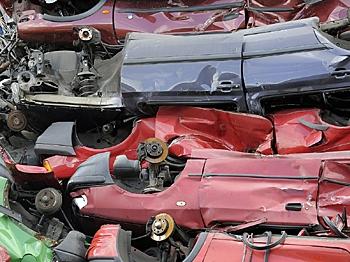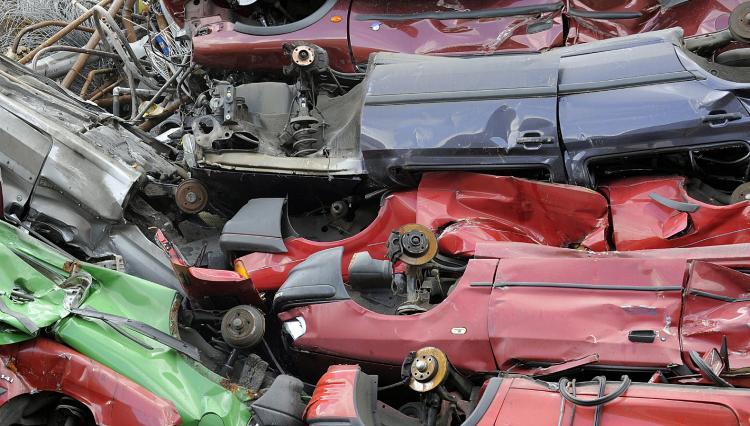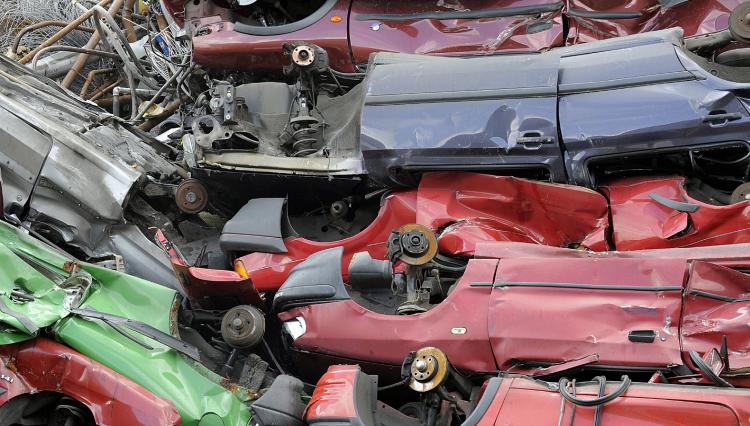“Cash for Clunkers” will provide up to $4,500 for car owners to trade in their existing vehicle for a more fuel-efficient alternative.
There are some conditions that buyers must meet. To be eligible for the $4,500, car owners must trade in their current car—which must get less than 18 miles per gallon (mpg) in fuel efficiency—and choose a new car with a 10 mpg improvement. Choosing a car with a 4 mpg improvement is only eligible for a $3,500 voucher.
The federal government allocated $1 billion in funding toward the measure.
Auto dealerships see this bill as a much needed boost to their industry. Many dealerships and automakers already offer similar incentive to new car buyers, but this federal mandate sweetens the pot even more for those on the fence.
Online car information Web site Cars.com launched a guide to help consumers take full advantage of the legislation.
“Say your 1999 Ford Crown Victoria gets a combined 18 mpg. You have your eye on a new 2009 Ford Taurus, but it only gets 21 mpg, according to EPA ratings. You aren’t eligible for a credit, because if you’re buying a new car (not SUV, truck or minivan), it must get at least 22 mpg,” said Patrick Olsen, editor-in-chief of Cars.com, in a statement.
“However, if you opt for the 2010 Ford Fusion with a four-cylinder engine instead, you'll get a combined 25 mpg and a $3,500 credit. If you want a $4,500 credit but want to stick with Ford, you could get a manual 2009 Ford Focus (28 mpg combined) or a 2009 Ford Escape (24 mpg) or Escape Hybrid with either four-wheel drive (28 mpg).”
While the law undoubtedly helps auto companies, some experts hail its potential impact on the environment.
“The ‘Cash for Clunkers’ legislation not only helps improve air quality and reduce greenhouse gas emissions, but also consumers can breathe easier knowing that automobiles are the most recycled consumer product in the nation, more so even than aluminum cans and yard trimmings,” William Bradshaw, chairman of Automotive Retailing Today, said.
Auto Sales to Improve?
J.D. Power & Associates expects a rebound in auto sales for the month of June. The research organization found that over the first 17 days of June, sales have been brisk, relative to recent months.
New vehicle sales are expected to be around 789,400 units this month, J.D. Power estimates. That’s a 14 percent increase over May, although it’s a decline of 9 percent compared to last June.
Ford Motor Co., the second biggest automaker in the United States, this week boosted its third-quarter production target for a second time, signaling that the company expects a turnaround in auto sales in the near future.
The company projects to build around 485,000 new vehicles during Q3, a 16 percent improvement from the same period last year.
Ford’s maneuver also signals a strategic move to take a bigger piece of the auto market as chief rivals General Motors Corp. and Chrysler LLC emerge from bankruptcy.






